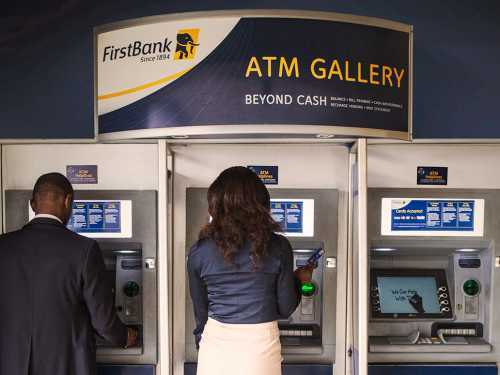Welcome to WordPress. This is your first post. Edit or delete it, then start writing!
Arbitrary charges effected on Automated Teller Machine, ATM, cards and other services rendered by banks have been identified as a possible factor that may hinder Nigeria’s financial inclusion drive.
Random respondents who spoke with PREMIUM TIMES on Monday said other charges like those on withdrawal limits also discourage customers, especially low-income earners, from accessing financial services offered by banks.
Some of the respondents, who claim to have lost interest in bank services, attributed it to those controversial charges.
Lingering Controversy
Over the years, issues of ATM charges, card maintenance fee and other sundry charges have been major causes of controversies between banks and their customers in Nigeria.
In September 2017, a viral campaign was launched against Nigerian banks by customers who lamented how they were unduly charged for various fees that were largely described “ridiculous and unfair”.
Across social media platforms, angry Nigerians poured out their minds and called on the authorities to address the perceived anomaly.
By October, the outrage had prompted the Nigerian Senate to frown at the various charges and withdrawal limits placed on accounts by the banks.
The Senate also urged banks to allow N40,000 maximum per withdrawal through an ATM and not N10,000.
In another resolution, it “urged the Central Bank of Nigeria to suspend the ATM Card Maintenance Charges being deducted from customers account pending the outcome of the investigation by the Committees.”
It also called on the Consumer Protection Council to take up the plight of ordinary Nigerians by looking into the various complaints of excess and unnecessary charges by Nigerian Banks
But despite the intervention of the Senate, many Nigerians still complain of arbitrary charges on their bank accounts.
Complaints
Charles Okosi, a trader, said the amount a particular new generation bank charged him for “Card Maintenance” prompted him to close his account after several years of running it.
“The charges are just too crazy,” he said of the amount deducted from sundry services. “It is not even worth it.”
Kazeem Oba, a student of the Lagos State Polytechnic, Lagos, explained that although students’ accounts are easy to open because they attract “zero balance”, some of the charges effected on those accounts could be disheartening.
“They allow you to open the account without any money; savings account. But when you carefully calculate the charges they deduct for card maintenance and all that, you’d realise nothing is free,” he said.
Another student of The Polytechnic Ibadan, Lateef Ojuolape, said his colleagues had abandoned their accounts with a particular new generation bank because of arbitrary charges made on those accounts.
He explained that because they are students, there is a limit to how they can cope with the arbitrary charges.
CBN’s Drive
According to the Nigerian central bank, the global pursuit of financial inclusion as a vehicle for economic development had a positive effect in Nigeria as the exclusion rate reduced from 53.0 per cent in 2008 to 46.3 per cent in 2010.
In 2012, the CBN launched the National Financial Inclusion Strategy to further reduce the exclusion rate to 20 per cent by 2020.
Last June, the CBN said the country’s unbanked population currently stood at 37 per cent. The apex bank lamented that it had not done much to ensure that more Nigerians are included in the nation’s financial sector.
But beyond mere involvement, analysts have opined that a major phase of the financial inclusion journey is for those captured to be active within the financial ecosystem.
Access to financial services especially among rural dwellers, poor technology and other logistic concerns have been identified as possible factors that could hinder the nation’s drive.
But with arbitrary charges by banks, respondents who spoke with PREMIUM TIMES said that customers might lose interest in services offered to ease payments and other related transactions.
“There are some traders I know who would not open an account,” said Mr Okosi, a trader. “They handle cash. They ordinarily will not trust any bank with their money but even if they want to, will they go ahead with all these stories of arbitrary charges that we have in Nigeria?”
Another respondent, Kunle, noted that his bank has been deducting charges on ATM “maintenance” fees from his account even as he has never obtained an ATM from the said bank.
He said he may be forced to close the account in the nearest future.
Threat
A finance and public policy expert, Jide Ojo, told PREMIUM TIMES that the development is capable of jeopardising the nation’s drive toward development and financial inclusion.
“It is quite unfortunate that Central Bank of Nigeria has not been protecting bank customers,” Mr Ojo said. “I say this because of the impunity of indiscriminate and criminal bank charges from ATM maintenance fees to card maintenance fees.
“It, therefore, does not come as a surprise that many bank customers are closing their bank accounts. This poses a serious threat to the financial inclusion plan of CBN.”
“Even the issue of removal of charges on ATM withdrawal has been grossly flouted by banks. Unlike before when bank customers can withdraw up to N40,000 at once, now you can only withdraw N10,000 at once
https://www.premiumtimesng.com/business/financial-inclusion/328817-how-bank-charges-hinder-financial-inclusion-in-nigeria.html
Leave a Reply